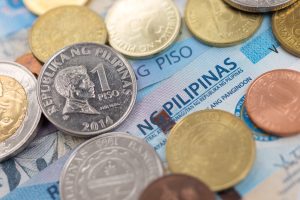Late last month, the two houses of the Philippine Congress approved the controversial Maharlika Investment Fund (MIF) bill amid persistent criticisms from opposition leaders, lawyers, economists, and civil society groups.
It took the House of Representatives only 17 days to pass the MIF bill in December. Responding to the concern of labor groups, legislators removed pension funds as a source of capitalization for the MIF. President Ferdinand “Bongbong” Marcos Jr. certified the bill as a priority measure, which allowed the Senate to hasten the committee and plenary deliberations until it was passed on May 31.
Marcos has yet to sign the bill into law, but he is expected to present it during his second State of the Nation address next month.
Marcos and his allies in Congress may have succeeded in passing the MIF, but the opposition against it continues to grow.
For example, a discussion paper was published by 21 economics professors of the University of the Philippines (UP) urging Marcos to veto the MIF because of the “serious risks” it poses to the country’s future.
“In our view, the MIF violates fundamental principles of economics and finance and poses serious risks to the economy and the public sector – notwithstanding its proponents’ good intentions,” they said. One of those who authored the paper is a former socioeconomic planning secretary of the government.
The economic managers of Marcos are mostly graduates and former professors of UP.
The 21 UP economists questioned the purpose of the MIF, which was first presented as a sovereign wealth fund. But since the country does not have any significant surpluses, they warned that it “necessarily forces the MIF to scour money from other agencies and corporations of government.” Indeed, state-run banks and the national government will provide the seed funds for the MIF.
They argued that funds should be directly allotted to development projects.
“The MIF takes away precious funds from the public coffers – funds that could be spent instead on myriad developmental projects with surer or more tangible returns, like conditional cash transfers, nutrition programs, universal health insurance, or active transportation projects,” the paper stated.
The UP economists also expressed concern about the “poorly designed governance structure” of the MIF and the risk of “political interference, mismanagement, and corruption” considering that the president will appoint members of the investment board.
Lastly, they gave this advice to the government: “We must prioritize fiscal and financial stability, transparency, and prudence over speculative gains and uncertain financial experiments.”
Economist JC Punongbayan, who also signed the paper, explained in his online column that there is no guarantee that the MIF will bring immediate gains. “The world economy is not in the best shape, what with persistent inflation, higher interest rates, and the continuing Russian invasion of Ukraine which has led to global shockwaves and disruptions. It’s a hard time to chase investments with good returns,” he wrote.
Congressman Joey Salceda, one of the proponents of the MIF, insisted that the objective of the fund – to spur local development – is clear. “If it takes on the characteristics of an investment fund in some respects, it does so only because it necessarily has to be involved in the financial markets,” he said in a media interview.
On June 13, Marcos’ economic team released a statement defending the MIF. “The MIF is not only beneficial but necessary at this point in time,” it argued. “While the Philippines can offer investment opportunities, given that we are still a growing economy, we see that the cost of debt has risen, making the need to explore vehicles to attract equity financing.”
It asserted that the MIF is “an ideal vehicle and well-positioned to bring in investments as the Philippine economic outlook remains robust amid the global economic slowdown.”
But aside from convincing economists about the viability of the MIF, the Marcos government also has ensure that the bill, if signed into law, will pass the scrutiny of the Supreme Court. Senate Minority Leader Aquilino “Koko” Pimentel III said that the “ill-conceived legislation” should be returned to Congress because it is “full of opaque provisions, contradictions, ambiguities, and loopholes.” His position is echoed by two former senate presidents who believe that the best solution is to table the bill for more debates and amendments.
For his part, Senate President Juan Miguel Zubiri is confident that the senate version of the MIF will “attract investments, impose integrity safeguards, and yield gains for social good.” He also assured the public that the bill has more than enough safeguards to guard against the misuse of funds.
Marcos, who will soon mark his first year in office, needs to prove that the MIF is what the country needs today amid rising prices and economic uncertainty. He should also justify why billions of pesos will be channeled into an investment scheme instead of using the money to expand social services and provide wage hike subsidies as demanded by various basic sectors over the past year.
































